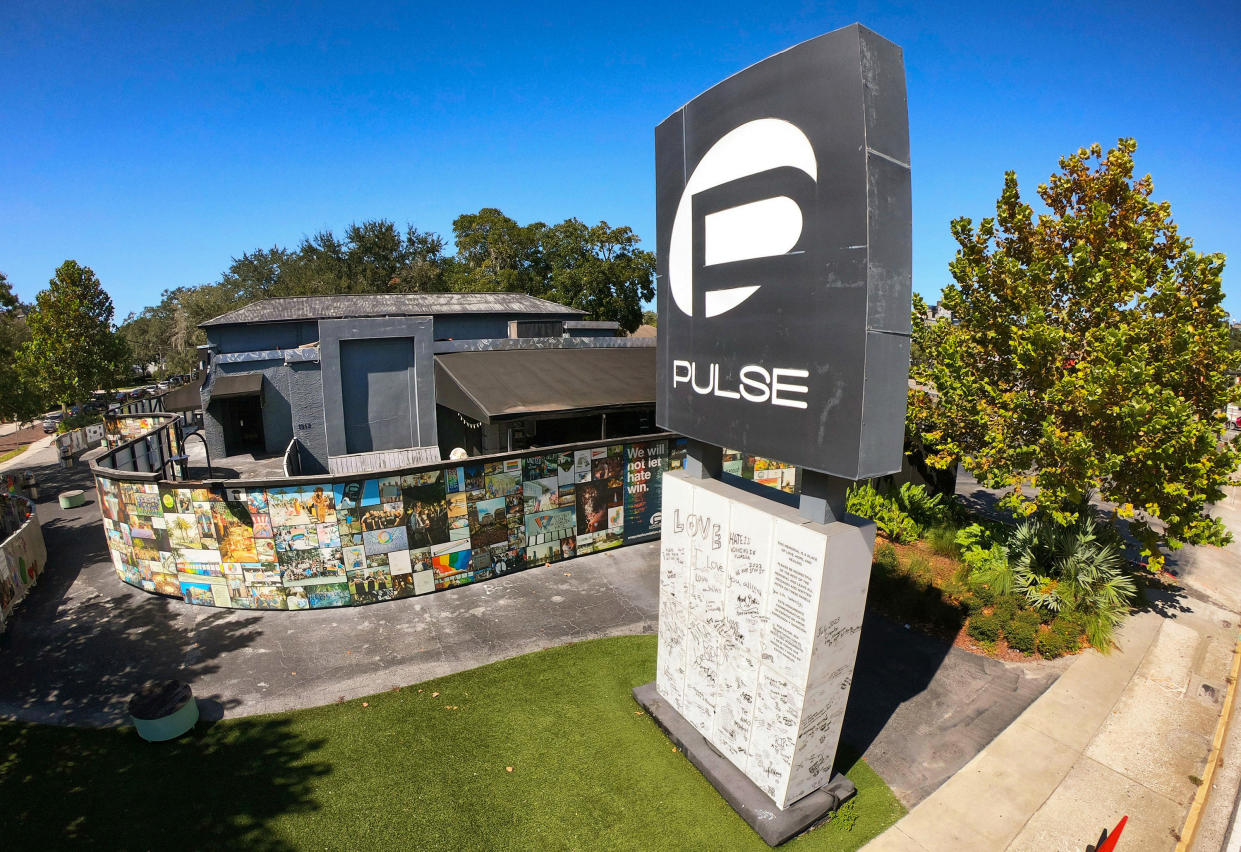onePulse trustees vote to dissolve nonprofit after plans for Pulse memorial falter

ORLANDO, Fla. — The embattled onePulse Foundation, formed to help commemorate one of Central Florida’s darkest tragedies, announced Wednesday morning it is shutting down with its mission undone, writing a sad coda to the Pulse nightclub massacre but leaving — perhaps — a better ending yet to be written.
Promising to build a memorial and museum for impacted families and survivors of the 2016 terror attack that left 49 dead, the foundation instead failed to lay a single brick, its admirable ambitions undermined by leadership turmoil and financial setbacks that left it unable to fulfill its charitable goals.
On Tuesday, the organization’s board of trustees voted behind closed doors to begin the process of transferring its assets to Orange County and the city of Orlando and dissolving the nonprofit corporation, according to a statement shared with the Orlando Sentinel. As the death knell for onePulse began to sound in recent weeks, local leaders have said they are determined to see the memorial, at least, brought to fruition even without its best-known champions.
“Our vision was to honor the 49 lives taken, survivors and first responders, and to permanently preserve the site of the tragedy. We developed an ambitious agenda to fulfill these mandates and received positive support both locally and globally,” said Yolanda Londoño, onePulse Foundation Board spokesperson.
“Unfortunately, best intentions are not enough.”
onePulse blamed its failures on circumstances beyond its control, including its inability to secure a full donation of the Pulse nightclub site from the previous property owners to house the memorial, and a global pandemic that impacted its fundraising efforts.
But critics of the foundation say it suffered from self-inflicted wounds caused by its spending and muddled talks with the former property owners, including Barbara Poma, the woman who started the organization seven years ago.
According to the business records, the onePulse Foundation filed for nonprofit recognition on July 7, 2016. The founding board members listed in the articles of incorporation include Poma, entrepreneur Jason Felts and attorney Gus Benitez.
In its tax forms, the nonprofit organization says it aims to “create and support a memorial that opens hearts, a museum that opens minds, educational programs that open eyes and legacy scholarships that open doors.”
Though its legacy may be shaded by a lack of progress on a memorial and the abandonment of the quest for a museum, the organization did start several programs aligned with its mission.
onePulse has awarded 196 scholarships since its inception, of which 16 have been awarded to Pulse family members and 14 have been awarded to Pulse survivors. Two first responders to the mass shooting were also awarded scholarships from the foundation.
Over the last several years, the organization’s educational program has put on free film screenings, art performances and live audience discussions that promote social acceptance and unity.
Before the pandemic, onePulse conducted surveys with thousands of participants and arranged an international design competition to select plans of a museum and memorial, ultimately choosing designs by Coldefy & Associés with RDAI and Orlando-based HHCP Architects in 2019.
But when costs for the museum and memorial skyrocketed to as much as $100 million, the group opted out of completing those depictions.
Officials with the organization are now offering the city of Orlando and Orange County access to all existing planning and design materials and “all the valuable work over our six years of working with those so deeply affected by the Pulse tragedy,” according to the organization.
In addition, it hopes to transfer its scholarship program and CommUNITY Rainbow Run to other willing organizations, Londoño said.
Amid the faltering plans, the organization has been met with intensifying scrutiny from donors as well as local and state government officials.
Community leaders and members are demanding transparency and others are inquiring about returning state-issued funds. Meanwhile, several individual donors have requested refunds and some lawmakers have called for a forensic audit. And just Monday, Orange County accused onePulse of unauthorized use of the property once planned for a museum, saying it had leased out portions of it without required county approvals. Questions are now being raised about how that lease money was spent.
Mark Cady-Archilla, a former corporate partnership director at onePulse who left in January, said an audit of the organization would find that the nonprofit was “built the wrong way.”
“It will find that execs were paid a lot of money and had little to show for it,” Cady-Archilla added in a recent interview.
“I got to know so many families and survivors on a personal basis. They’re the ones that are hurting,” he said. “[The foundation] should have never gotten engaged in scholarships and programs. It was done incorrectly. They should have focused on building a memorial, which was their primary purpose, then you do programs and legacy scholarships.”
John Trybus, a professor of social impact and nonprofit management at Georgetown University and a director at its Center for Social Impact Communication, said a nonprofit like onePulse can’t be judged a success or failure solely by whether it achieved its central goal. It’s important to note what the organization itself is trying to achieve, as well as what stakeholders and community members want from it.
“All those should be combined and contemplated and there should be a free flow of communication both back and forth to be able to build trust that those forms of impact are actually being reached,” Trybus said.
“Whether this organization needed to be improved from an operational standpoint or not, that I can’t speak to, but what I think is clear is that trust has been lost with really key stakeholders and members of the community.”
_____

